A vertical garden ideal for apartment homes

It features automated watering and supplementary LED lights for better plant growing
It features automated watering and supplementary LED lights for better plant growing
For those who want to grow their organic vegetables at home but they lack space, the Taiga Tower might be the solution, as it offers the benefits of a backyard garden but in much smaller dimensions. This smart garden tower is structured in an upright design in order to save space, and has a diameter of just less than 38 inches. It is approximately 4.5 ft tall and can stretch out to a maximum of 5.5 ft to allow more growing space. Levels can also be completely removed from the standard three-tier system, to reduce size. The tower offers an amount of growing space equivalent to that of an 80 ft2 garden in its 9 removable pots of 0.6 ft3 each. The system claims to have a capacity for 50 plants and can rotate 360 degrees for easy access to all of them. The tower is suited for both indoor and outdoor use, and it can be easily relocated due to its built-in wheels.
Its creators, Sural and Daya Ranamukha, had been working on improving the design of the prototype for over one year to optimize the Taiga Tower features. This indoor, lower-maintenance garden is equipped with an automated watering system. Internal sensors monitor the moisture levels of the soil in each pod and when needed, water is being pushed from the bottom reservoir to each of the trays. The base of the tower holds the water basin, which only needs to be filled every 7 to 10 days –this is easily done by connecting a standard garden hose-. There is also self-rotation to enable even sunlight distribution as well as a LED spectrum light at the top of the tower that facilitates indoor growth. Moreover, the system can be controlled via the Taiga mobile app, as all its functions are fully automated. While using the app, you can design a watering schedule for your plants and can switch it on and off depending on your schedule.
The tower was available for purchase during its crowdfunding campaign at a cost starting at $149. The campaign ended last November and the first shipments are estimated to begin in June 2017.
Want to read more like this story?
The leaning tower of Bologna closes amid settlement concerns
Oct, 26, 2023 | NewsBologna’s leaning 48-meter tall Garisenda Tower was closed during the weekend, after worrying movem...
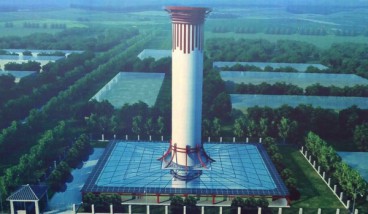
World’s largest air purifier is undergoing testing and will soon start operating in China
Feb, 13, 2018 | NewsPreliminary results suggest it has already helped reduce smog levels in Xian Preliminary results su...

Mori JP tower becomes Japan’s tallest skyscraper
Mar, 20, 2024 | NewsThe completion of the 330 m tall Mori JP tower was recently announced by its designers, making the...

Check out these glowing plants that shine in the dark
Jan, 15, 2018 | NewsThe technology could be used to provide low-intensity indoor lighting, or to transform trees into se...
Warsaw: the EU’s tallest building completed
Nov, 08, 2022 | NewsWork has been completed on the exterior of the 310m-tall Varso Tower in Warsaw, the tallest buildin...
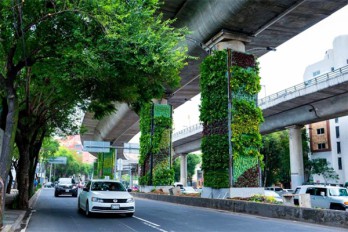
Vertical gardens in Mexico City to combat pollution
Jan, 13, 2017 | News‘Via Verde’ project is turning the pillars of a busy motorway green ‘Via Verde&...
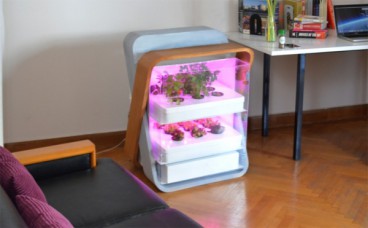
A mini vertical farm to cultivate at home
Dec, 04, 2017 | NewsWith CityCrop and its smart features, the user can easily cultivate fresh vegetables and fruits anyw...

Harnessing the Sun: Selby Gardens’ Leap in Sustainable Design
Jul, 25, 2024 | NewsOn June 27, 2024, Marie Selby Botanical Gardens in Downtown Sarasota celebrated a groundbreaking ac...

World’s tallest residential clock tower to be constructed in Dubai
Jan, 09, 2024 | NewsIt was recently announced that Dubai is going to be home to the world's tallest residential clock t...
Trending
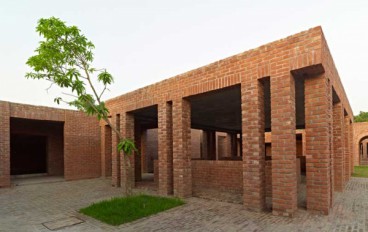
Characteristics of Load Bearing Masonry Construction

Taipei 101’s impressive tuned mass damper

Morocco Implements Landmark Dam Perforation to Combat Water Stress in Marrakech
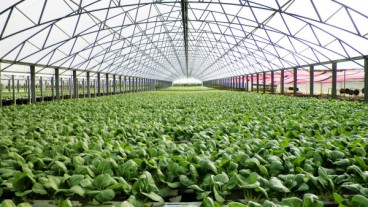
Dutch greenhouses have revolutionized modern farming

The Line at Neom faces feasibility reassessment while construction continues

The Line at Neom faces feasibility reassessment while construction continues

A new chapter for Sunderland: The £31 million Keel Crossing opens

